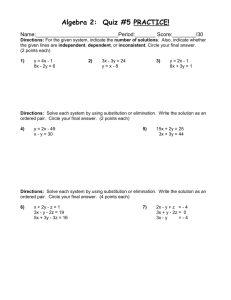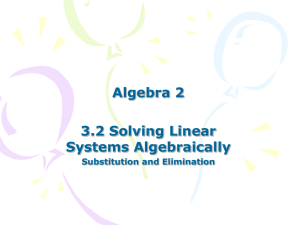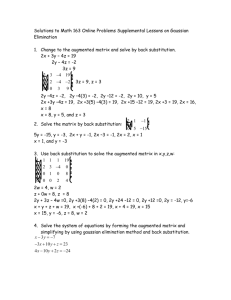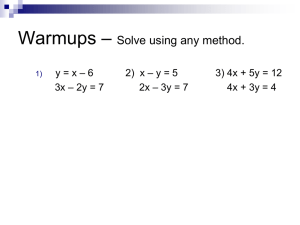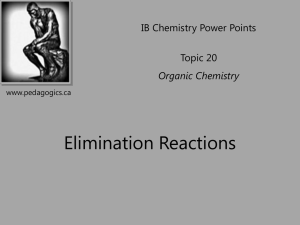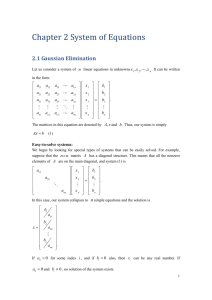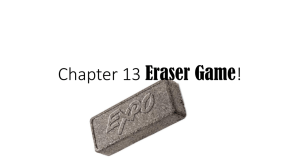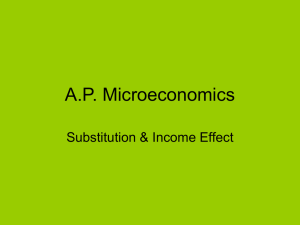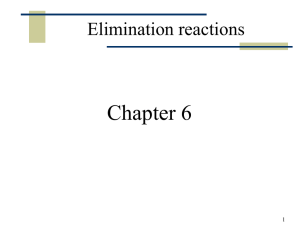Elimination vs Substitution
advertisement
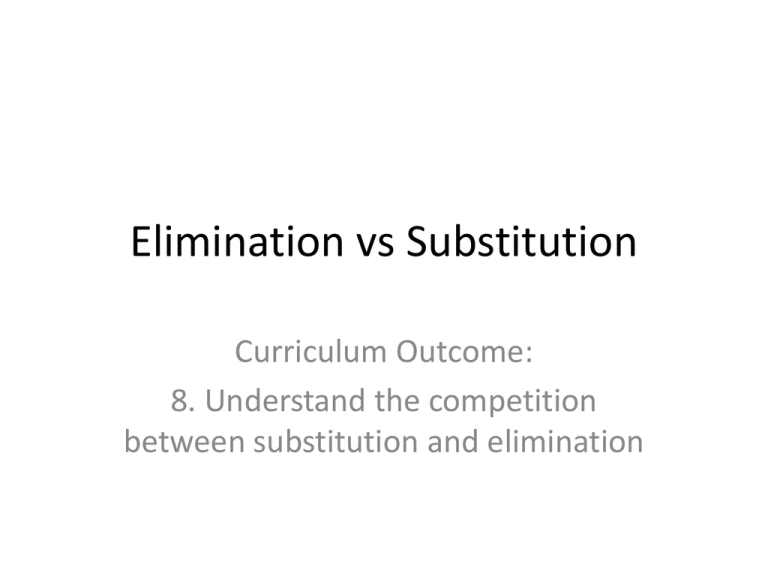
Elimination vs Substitution Curriculum Outcome: 8. Understand the competition between substitution and elimination Two Outcomes If we react a haloalkane with hydroxide ions there are two possible outcomes. 1. Elimination Removal of halogen and formation of double bond. 2. Substitution Removal of halogen which is replaced by the –OH group Nucleophillic Substitution In this example, 2-bromopropane is changed to 2-propanol. Elimination In this example the 2-bromopropane reacts to give propene. Notice that the hydrogen is removed from one of the end carbons. Markovnikov’s rule in reverse ? What decides whether you get substitution or elimination? • The same reagents are used for both the substitution and elimination reactions. • In all cases you will get a mixture of both reactions happening! • The reaction conditions determine the major product. Reaction Conditions Type of haloalkane Solvent used for the reaction The temperature Concentration of the OH- solution Type of Haloalkane This factor has the greatest influence on the product formed Type of Haloalkane Primary Secondary Substitution or Elimination Mainly substitution Both substitution and elimination Tertiary Mainly elimination Draw structures to represent the primary, secondary and tertiary structures. Solvent NaOH or KOH are soluble in water. The haloalkanes are soluble in ethanol. The proportion of water to ethanol in the solvent changes the reaction outcome. • More water encourages substitution • More ethanol encourages elimination Temperature Higher temperatures encourage elimination. Lower temperatures encourage substitution. Concentration of OHHigher concentrations of OH- favours elimination Make a table to summarise Reaction Condition Type of Haloalkane Solvent Temperature Concentration of OH- Substitution Elimination
